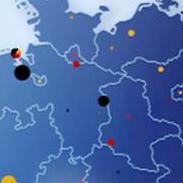When most analysts look at Russian foreign policy today, they treat Russia as if it is a unified state with a meaningful strategy and clear goals. They focus on Russian national interests, state security concerns, relative power in the international system, or the cultural identity and tendencies of the Russian nation. Sometimes they focus on Vladimir Putin as an authoritarian leader, and foreign policies are assumed to reflect Putin’s personality or personal ideology. Even then, though, the assumption is that Putin leads the state and has a strategy to achieve clear state-based goals. […]
A New Explanation for Russian Foreign Policy: The Power of Informal Patronage Networks
PONARS Eurasia Policy Memo No. 274
By Kimberly Marten
Septmeber 2013










